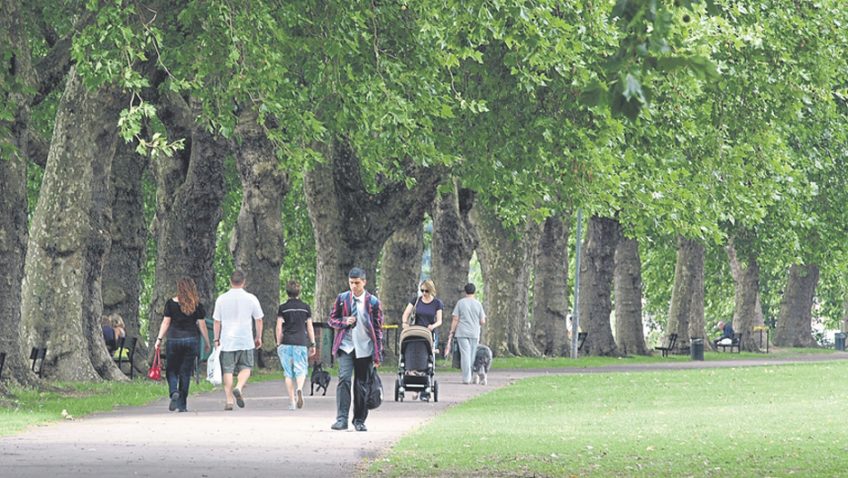Over half the UK population regularly use their local park, yet the challenge of managing our parks and green spaces is increasing due to the continued reduction in funding and loss of staff and skills. We have to find a solution now before the improvements made over the past 20 years are lost and our parks, once again, go into decline and become places that require significant investment.
The House of Commons’ Communities and Local Government Committee recently published its report on their inquiry into public parks. The Parks Alliance responded to the report and view the inquiry as just the start of the process to protect and enhance our parks. The inquiry gives all of us, the public, park professionals, local and central government the opportunity to find solutions to avoid nursing our parks into a managed decline.
Parks central to wellbeing
The Committee recognised that parks are central to our wellbeing and confirmed what we have believed for some time that parks are at a tipping point.
Local authorities, voluntary groups and contractors have all done an excellent job of offsetting significant budget reductions by working inventively and collaboratively to find new solutions. However this is disguising the depth of the crisis.
The sector is at a tipping point, with a high percentage of parks managers having left the sector, leading to a degradation of the skills base. Of those remaining, some 95% expect cuts to their budget over the next 3 years. This is unsustainable. We all know Parks have a beneficial effect on our lives, so we need to act on this now. A make do and mend approach will not work. Government and local authorities need to recognise the benefits of parks and green spaces, including on health, and fund them appropriately. Otherwise we will lose an essential part of British life.
Children
Parks are an integral part of childhood. In an average month, almost half (48%) of all children in England visit local urban parks. Parks deliver a wide range of benefits to society, but these benefits are not properly understood or acknowledged. These include:
- boosting the local economy through attracting businesses and tourists;
- improving mental and physical health;
- offsetting pollution and flood risks;
- encouraging volunteering and community cohesion; and
- providing an urban habitat for the UK’s wildlife.
The Parks Alliance supported the Committee’s call for local authorities to publish strategic plans to recognise the value of parks beyond leisure and recreation, but there is a role for central government too.
Need for leadership
Fundamentally, there is a case for greater leadership to ensure our public parks thrive and we would go further and ask that investment is directed by central government to ensure there is strong leadership in the parks sector. If this comparatively small investment is made, it will deliver huge return in terms of improved wellbeing, social cohesion and environmental management. In order for leadership and national coordination to develop, this will require the necessary and urgent investment. It is then up to the Parks Alliance and others to step forward and prepare the profession to respond and continue to innovate to protect our parks.
The Committee will return to the state of parks to gauge the progress made before the end of this Parliament.
Keep the pressure up, join us at Alliance
www.theparksalliance.org or telephone us on 0207 685 2658.
Matthew Bradbury,
Chair of the Parks Alliance




